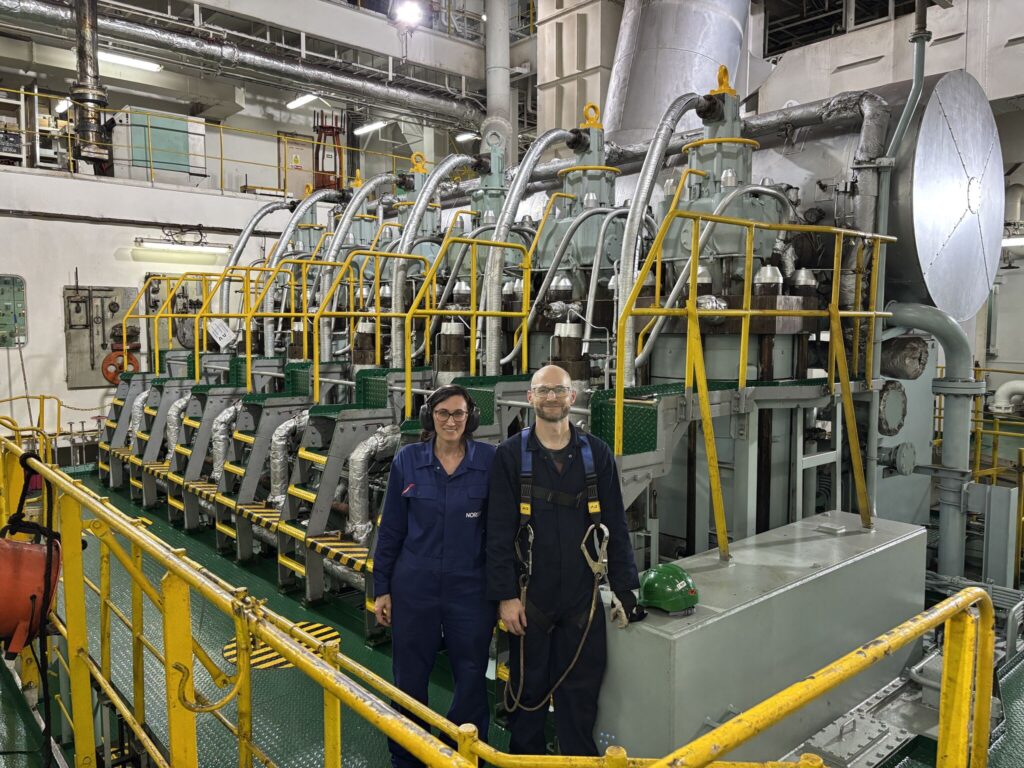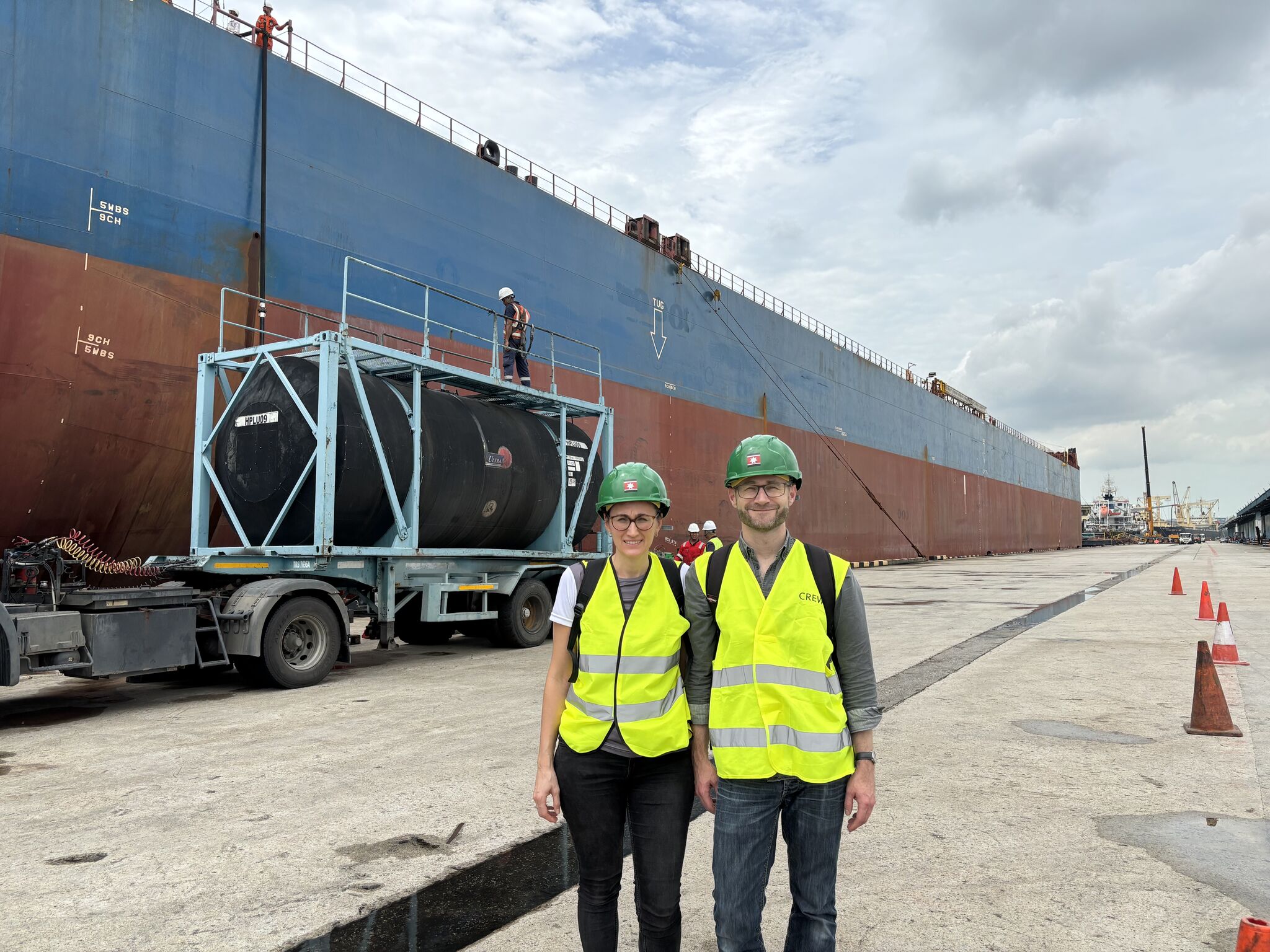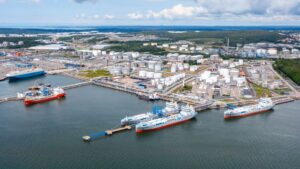Danish shipowner Norden and India-Danish company MASH Makes have performed a successful vessel trial of the MASH Makes’ biofuel on an auxiliary engine of an ocean-going bulk carrier.
The B20 blend was consumed during a roundtrip voyage between Singapore and Brazil on an auxiliary engine, and next step will be to trial the biofuel on a main engine.
Shipowner Norden acquired a minority stake in MASH Makes in 2023 to strengthen its future supply of renewable fuels, and since the acquisition the two companies have worked closely together to validate the biofuel for marine usage.
When shipping companies choose MASH Makes biofuel, they’re not just aiming for net zero but they’re choosing a fuel made through a carbon negative process. MASH Makes biofuel is produced through pyrolysis, which converts agricultural residues into renewable energy and It is comparable with ISO8217 marine fuel standards and designed to work as a drop-in fuel for the shipping industry.
For every tonne of biofuel produced, MASH Makes also generates 1.8 tonnes of biochar, a stable, carbon-rich material applied to soil. Each tonne of biochar locks 3.14 tonnes of CO₂ from the atmosphere into the ground, so creating a direct link between fuel production and carbon removal. This means every tonne of MASH biofuel is associated with 5.7 tonnes of CO₂ being sequestered permanently in the soil as the company states.
Henrik Røjel, Head of Decarbonisation and Climate Solutions at Norden, says that “Drop-in biofuels are an important part of Norden’s transition to lower emissions for our customers in the here and now. This trial proves that MASH Makes’ biofuel is suitable for marine engines, and it marks an important milestone towards bringing the fuel into our operation.”
Jakob Bejbro Andersen, CEO of MASH Makes says that “Our biofuel meets the technical requirements of the shipping industry and can be used in unmodified engines. It’s a seamless, scalable alternative ready to cut emissions today.”
Maria Jamarillo, Senior Analyst, Boundless Impact Research & Analysis, says that “Our independent analysis shows that MASH Makes’ biofuel production process is carbon negative, which is driven by the permanent carbon sequestration achieved through the co-produced biochar and its use in sustainable agriculture.”

Photo credit: Norden.



